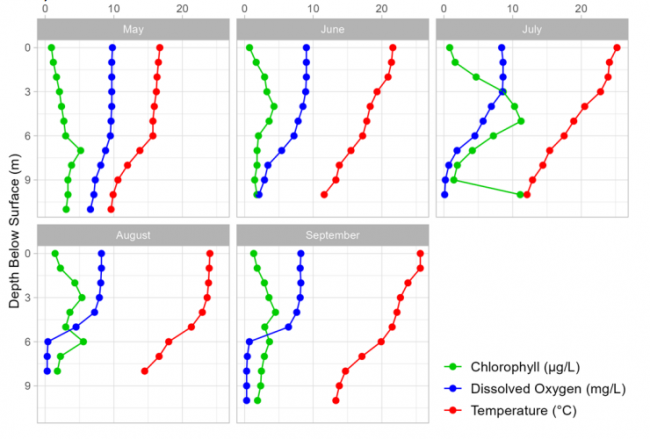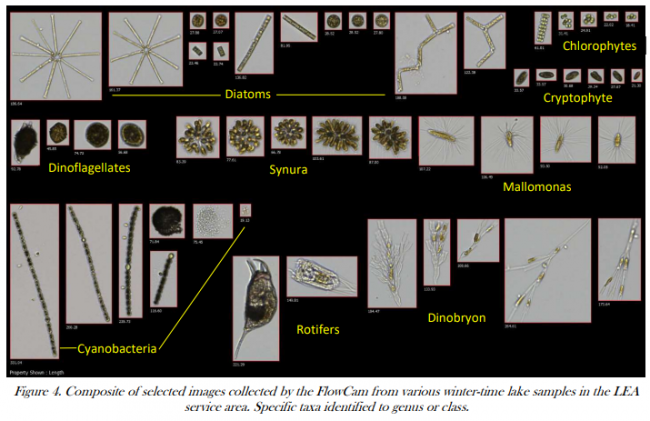
May – LEA’s water testing team collected the first fluorometer profile in mid-May. At that time, Moose Pond’s south basin was beginning to stratify. In the upper waters, fluorescence values increased until reaching their peak at 7
meters. This fluorescence increase occurred near the thermocline where the rapidly changing water density likely provided algae a place to “sit”. In the deep waters, fluorescence gradually decreased.
June – In the upper waters, fluorescence values gradually increased with depth, reaching a peak at 4 meters. In the deep waters, algae concentrations returned to low levels.
July – Warm surface waters provided algae favorable growing conditions, noted by the elevated fluorescence readings in the upper waters. Fluorescence values increased until reaching a peak at 5 meters and then gradually declined. Increased fluorescence values near the bottom are likely caused by interference from bottom sediments.
August – Warm surface waters continued to provided algae favorable growing conditions, however there was noticeable variation with depth and two mild fluorescent peaks can be seen at 3 meters and 6 meters. In the deep waters, algae concentrations returned to low levels.
September – In the upper waters, fluorescence values gradually increased until reaching a mild peak at 4 meters. In the deeper waters, fluorescence values decreased and values remained fairly low and uniform.
Synopsis: Algae concentrations were low to moderate throughout season and variable throughout the water column. Similar to the other two basins of Moose Pond, highest algae concentrations were observed in the upper waters during July sampling. High readings in the bottom waters were likely caused by sediment interference.
Gloeotrichia echinulata (a type of cyanobacteria (blue-green algae) commonly found in low-nutrient waters) can be seen with the naked eye. Gloeo density is reported as a value ranging from 0 – 6, based on the number of Gloeo colonies seen through a Secchi scope. Higher values indicate more Gloeo colonies. The south basin’s Gloeotrichia echenulata density ranged from 0 through 3 with the highest density occurring in mid-August.

